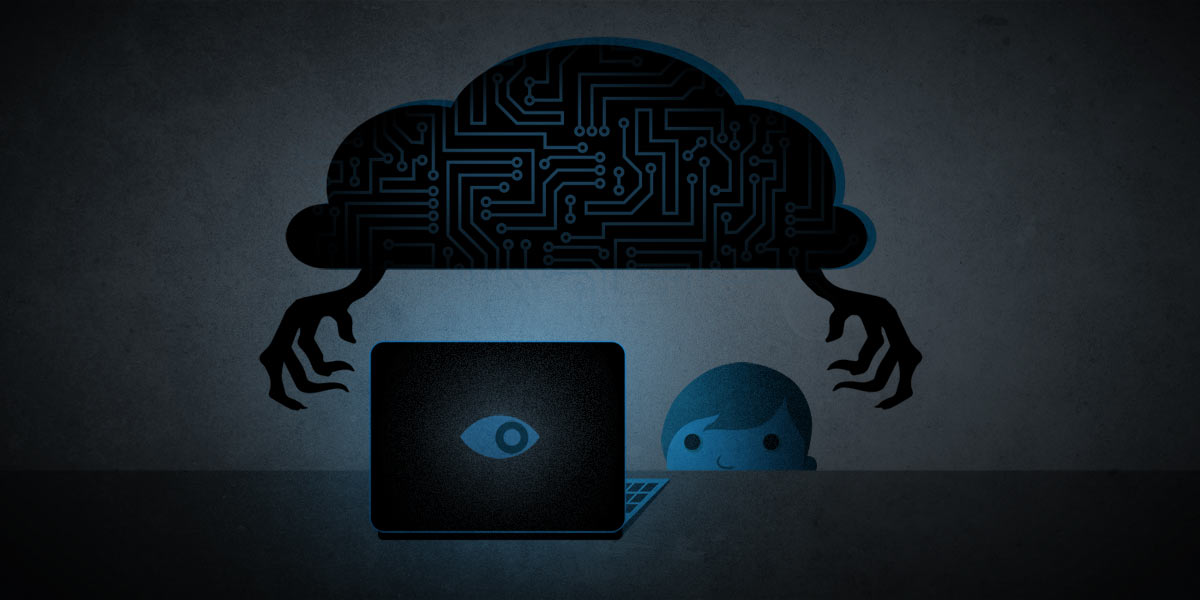Over the last year, state and federal legislatures have tried to pass—and in some cases succeeded in passing—legislation that bars young people from digital spaces, censors what they are allowed to see and share online, and monitors and controls when and how they can do it.
EFF and many other digital rights and civil liberties organizations have fought back against these bills, but the sheer number is alarming. At times it can be nearly overwhelming: there are bills in Texas, Utah, Arkansas, Florida, Montana; there are federal bills like the Kids Online Safety Act and the Protecting Kids on Social Media Act. And there’s legislation beyond the U.S., like the UK’s Online Safety Bill.
Young people, too, have fought back. In the long run, we believe we’ll win, together—and because of your help. We’ve won before: In the 1990’s, Congress enacted sweeping legislation that would have curtailed online rights for people of all ages. But that law was aimed, like much of today’s legislation, at young people like you. Along with the ACLU, we challenged the law and won core protections for internet rights in a Supreme Court case, Reno v. ACLU, that recognized that free speech on the Internet merits the highest standards of Constitutional protection. The Court’s decision was its first involving the Internet.
Even before that, EFF was fighting on the side of teens living on the cutting edge of the ‘net (or however they described it then). In 1990, a Secret Service dragnet called Operation Sundevil seized more than 40 computers from young people in 14 American cities. EFF was formed in part to protect those youths.
So the current struggle isn’t new. As before, young people are targeted by governments, schools, and sometimes parents, who either don’t understand or won’t admit the value that online spaces, and technology generally, offer, no matter your age.
And, as before, today’s youth aren’t handing over their rights. Tens of thousands of you have vocally opposed flawed censorship bills like KOSA. You’re using the digital tools that governments want to strip you of to fight back, rallying together on Discords and across social media to protect online rights.
If we don’t succeed in legislatures, know that we will push back in courts, and we will continue building technology for a safe, encrypted internet that anyone, of any age, can access without fear of surveillance or government censorship.
If you’re a young person eager to help protect your online rights, we’ve put together a few of our favorite ways below to help guide you. We hope you’ll join us, however you can.
Here’s How to Take Your Rights With You When You Go Online—At Any Age
Join EFF at a Special “Neon” Level Membership for Just $18
The huge numbers of young people working hard to oppose the Kids Online Safety Act has been inspiring. Whatever happens, EFF will be there to keep fighting—and you can help us keep up the fight by becoming an EFF member.
We’ve created a special Neon membership level for anyone under 18 that’s the lowest price we’ve ever offered–just $18 for a year’s membership. If you can, help support the activists, technologists, and attorneys defending privacy, digital creativity, and internet freedom for everyone by becoming an EFF member with a one-time donation. You’ll get a sticker pack (see below), insider briefings, and more.
We aren’t verifying any ages for this membership level because we trust you. (And, because we oppose online age verification laws—read more about why here.)
Gift a Neon Membership
Not a young person, but have one in your life that cares about digital rights? You can also gift a Neon membership! Membership helps us build better tech, better laws, and a better internet at a time when the world needs it most. Every generation must fight for their rights, and now, that battle is online. If you know a teen that cares about the internet and technology, help make them an EFF member!
Speak Up with EFF’s Action Center
Young people—and people of every age—have already sent thousands of messages to Congress this year advocating against dangerous bills that would limit their access to online spaces, their privacy, and their ability to speak out online. If you haven’t done so, make sure that legislators writing bills that affect your digital life hear from you by visiting EFF’s Action Center, where you can quickly send messages to your representatives at the federal and state level (and sometimes outside of the U.S., if you live elsewhere). Take our action for KOSA today if you haven’t yet:
TELL CONGRESS: OPPOSE THE KIDS ONLINE SAFETY ACT
Other bills that might interest you, as of October 2023, are the Protecting Kids on Social Media Act and the RESTRICT Act.
If you’re under 18, you should know that many more pieces of legislation at the state level have passed or are pending this year that would impact you. You can always reach out to your representatives even if we don’t have an Action Center message available by finding the legislation here, for example, and the contact info of your rep on their website.
Protect Your Privacy with Surveillance Self-Defense
Protecting yourself online as a young person is often more complicated than it is for others. In addition to threats to your privacy posed by governments and companies, you may also want to protect some private information from schools, peers, and even parents. EFF’s Surveillance Self-Defense hub is a great place to start learning how to think about privacy, and what steps you can take to ensure information about you doesn’t go anywhere you don’t want.
Fight for Strong Student Rights
Schools have become a breeding ground for surveillance. In 2023, most kids can tell you: surveillance cameras in school buildings are passé. Nearly all online activity in school is filtered and flagged. Children are accused of cheating by algorithms and given little recourse to prove their innocence. Facial recognition and other dangerous, biased biometric scanning is becoming more and more common.
But it’s not all bad. Courts have expanded some student rights recently. And you can fight back in other ways. For a broad overview, use our Privacy for Students guide to understand how potential surveillance and censorship impacts you, and what to do about it. If it fits, consider following that guide up with our LGBTQ Youth module.
If you want to know more, take a deep dive into one of the most common surveillance tools in schools—student monitoring software—with our Red Flag Machine project and quiz. We analyzed public records from GoGuardian, a tool used in thousands of schools to monitor the online activity of millions of students, and what we learned is honestly shocking.
And don’t forget to follow our other Student Privacy work. We regularly dissect developments in school surveillance, monitoring, censorship, and how they can impact you.
Start a Local Tech or Digital Rights Group
Don’t work alone! If you have friends or know others in your area that care about the benefits of technology, the internet, digital rights—or think they just might be interested in them—why not form a club? It can be particularly powerful to share why important issues like free speech, privacy, and creativity matter to you, and having a group behind you if you contact a representative can add more weight to your message. Depending on the group you form, you might also consider joining the EFA! (See below.)
Not sure how to meet with other folks in your area? Why not join an already-started online Discord server of young people fighting back against online censorship, or start your own?
Find Allies or Join other Grassroots Groups in the Electronic Frontier Alliance
The Electronic Frontier Alliance is a grassroots network of community and campus organizations across the United States working to educate our neighbors about the importance of digital rights. Groups of young people can be a great fit for the EFA, which includes chapters of Encode Justice, campus groups in computer science, hacking, tech, and more. You can find allies, or if you build your own group, join up with others. On our EFA site you’ll find toolkits on event organizing, talking to media, activism, and more.
Speak out on Social Media
Social networks are great platforms for getting your message out into the world, cultivating a like-minded community, staying on top of breaking news and issues, and building a name for yourself. Not sure how to make it happen? We’ve got a toolkit to get you started! Also, do a quick search for some of the issues you care about—like “KOSA,” for example—and take a look at what others are saying. (Young TikTok users have made hundreds of videos describing what’s wrong with KOSA, and Tumblr—yes, Tumblr—has multiple anti-KOSA blogs that have gone viral multiple times.) You can always join in the conversation that way.
Teach Digital Privacy with SEC
If you’ve been thinking about digital privacy for a while now, you may want to consider sharing that information with others. The Security Education Companion is a great place to start if you’re looking for lesson plans to teach digital security to others.
In College (or Will Be Soon)? Take the Tor University Challenge
In the Tor University Challenge, you can help advance human rights with free and open-source technology, empowering users to defend against mass surveillance and internet censorship. Tor is a service that helps you to protect your anonymity while using the Internet. It has two parts: the Tor Browser that you can download that allows you to use the Internet anonymously, and the volunteer network of computers that makes it possible for that software to work. Universities are great places to run Tor Relays because they have fast, stable connections and computer science and IT departments that can work with students to keep a relay running, while learning hands-on cybersecurity experience and thinking about global policy, law, and society.
Visit Tor University to get started.
Learn about Local Surveillance and Fight Back
Young people don’t just have to worry about government censorship and school surveillance. Law enforcement agencies routinely deploy advanced surveillance technologies in our communities that can be aimed at anyone, but are particularly dangerous for young black and brown people. Our Street-Level Surveillance resources are designed for members of the public, advocacy organizations, journalists, defense attorneys, and policymakers who often are not getting the straight story from police representatives or the vendors marketing this equipment. But at any age, it’s worth learning how automated license plate readers, gunshot detection, and other police equipment works.
Don’t stop there. Our Atlas of Surveillance documents the police tech that’s actually being deployed in individual communities. Search our database of police tech by entering a city, county, state or agency in the United States.
Follow EFF
Stay educated about what’s happening in the tech world by following EFF. Sign up for our once- or twice-monthly email newsletter, EFFector. Follow us on Meta, Mastodon, Instagram, TikTok, Bluesky, Twitch, YouTube, and Twitter. Listen to our podcast, How to Fix the Internet, for candid discussions of digital rights issues with some of the smartest people working in the field.
There are so many ways for people of all ages to fight for and protect the internet for themselves and others. (Just take a look at some of the ways we’ve fought for privacy, free speech, and creativity over the years: an airship, an airplane, and a badger; encrypting pretty much the entire web and also cracking insecure encryption to prove a point; putting together a speculative fiction collection and making a virtual reality game—to name just a few.)
Whether you’re new to the fight, or you’ve been online for decades—we’re glad to have you.










